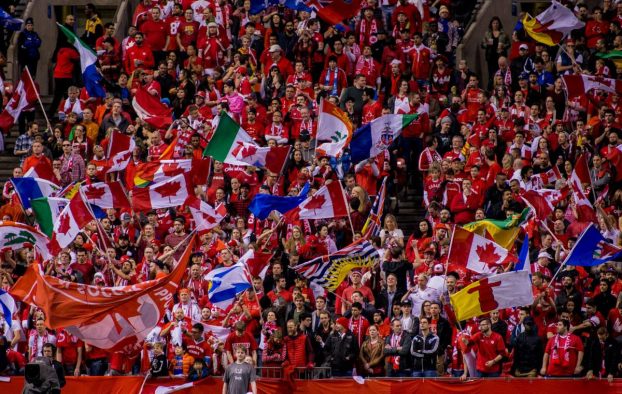Also in this special report:
* Grand Prix: On the streets p.B4
* Greater Vancouver Open: Hot ticket p.B4
* East Coast Music Awards: A joyful celebration p.B6
* Abbotsford International Airshow: Clear skies p.B6
* Canadian National Exhibition: A place of firsts p.B8
* The Calgary Stampede: ‘The Greatest Outdoor Show on Earth’
* Chinese New Year Festival: Cultural showcase p.B10
* Pan Am Games: Great coverage p.B10
As Strategy reported earlier this year, the passage of Bill C-71 in April effectively prohibits tobacco companies from taking title sponsor positions at live events in Canada after October 1998.
Since their ability to promote their wares through conventional media is highly restricted, tobacco companies have long been among the largest corporate sponsors of arts and sports events in this country.
If significant dollars from the tobacco industry are no longer available, then event organizers will find themselves competing ever more intensely for sponsorship revenues from new sources. Accordingly, they are going to have to become more aggressive, and show greater creativity when it comes to researching their prospective client base, positioning their events to the marketing community, tailoring those events to meet advertiser needs and creating sponsorship packages.
For this report, Strategy surveyed a representative sampling of major events across the country to find out how organizers ensure that their properties will appeal to sponsors, and how they identify and approach their client base.
Tobacco and beer companies have traditionally had the cool events locked up,’ Neill Dixon says.
As president of Canadian Music Week (cmw), one of those selfsame ‘cool’ events, Dixon is currently grappling with the implications of Bill C-71. It’s an issue of some concern, given that cmw used to be known as Export A Canadian Music Week.
Rather than complain, however, Dixon prefers to view the loss of tobacco advertising as an opportunity, and expresses confidence that some other company will see the benefit of becoming title sponsor of cmw.
Canadian Music Week began in Toronto 15 years ago as a conference for the sound recording and broadcasting industries. In 1991, a public component was added: namely, a music festival – which, in that first year, showcased all of three acts. Today, more than 350 acts – ranging from unsigned talent to some of the biggest names in the industry – perform in venues across the city.
cmw also features a conference, a multimedia exhibition and – new for 1998 – a radio awards show. Next year’s event is scheduled to take place March 5-8.
The festival encompasses all genres imaginable, from pop/rock to classical to jazz, opening up opportunities for sponsors to reach just about any target audience. cmw borrows heavily from research conducted by the radio and music publishing industries to help prospective sponsors figure out just who’s listening to what.
For Canadian Music Week sponsors, options range from association with a specific event, such as a concert or exhibition, to the use of an artist as a spokesperson.
‘The neat thing about this is that someone with $500 could get in, or someone with $2,500 or $25,000,’ Dixon says.
This is particularly true of the actual conference. While a larger company could fill the role of title sponsor – Apple Canada took up the option this year – smaller companies have the opportunity to sponsor features such as coffee breaks, lunches and the media room. Last year, a local Internet service provider sponsored a panel discussion on music and the Internet.
Dixon says organizers will work with companies to develop a sponsorship package that makes sense for both parties.
Cross-promotions may well form part of that. This year, for example, HMV Canada sponsored a bus that took music lovers to and from cmw events. People aboard the bus could listen to – and buy – Canadian music, and the bus made stops at hmv stores. The retailer also ran in-store promotions focused on the festival, and offered free passes with specific purchases.
Dixon says that while companies in lifestyle categories such as fashion and alcoholic beverages are obvious candidates for sponsorship (Molson Breweries, for example, has already signed on as the exclusive brewery for the 1998 event), he’s also hoping a major packaged goods company will consider coming on board.
Sponsorship of cmw, Dixon notes, can help put a company in contact with many holders of entertainment property rights – essential, if that company plans to use musical talent in future advertising or promotions. ‘Deals get done here,’ he says.























